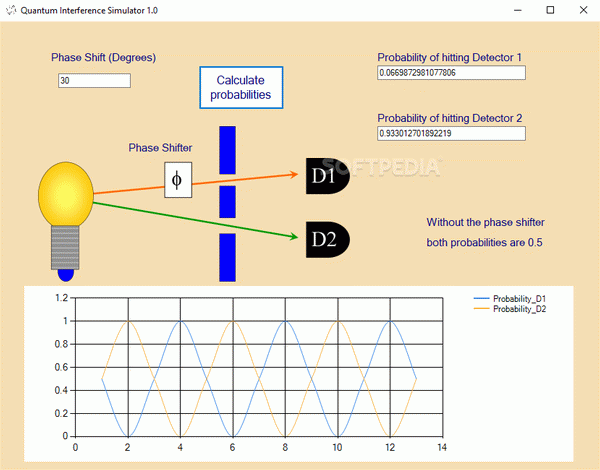Quantum Interference Simulator 1.0 Crack + Activation Code Download
The inherent phase shift and interference pattern that occurs during double-slit experiments for the separate waves are difficult to compute and represent graphically. Being at the core of the wave-particle duality principle, having a quantitative and qualitative representation of each can be really valuable. Quantum Interference Simulator will allow you to easily perform the involved calculus and plot the probability for detector hits that are experienced during such controlled setups.
Users must be aware that in order to operate the app, at least some basic knowledge of the parameters involved in classical double-slit experiments, namely phase shift and detectors will be required. The more, the better.

Download Quantum Interference Simulator Crack
| Software developer |
Dorian Luparu
|
| Grade |
4.1
263
4.1
|
| Downloads count | 1625 |
| File size | < 1 MB |
| Systems | Windows 8, Windows 8 64 bit, Windows 10, Windows 10 64 bit |
The main working principle implies the use of the phase shift (here provided as manual input, in degrees), based on which the corresponding hit probabilities are calculated. At this point, we want to state that no export capabilities are provided for the probability pairs are offered.
A generous plot offers users a graphical representation of the waveforms for each of the beams, yielding a corresponding detector hit probability. However, no customization options are provided for the graph, nor are any saving options.
Be that as it may, the app delivers fast, unhindered calculus and offers quick results and a clear preview of the required probability representations. This could be ideal for novices who are just getting into the field or even for professionals who require a fast way of dealing with the parameters.
This app offers a clear view of the probability calculus for the detector hits involved in double split experiments. Sporting a minimalist demeanor and easy-to-operate input controls, it can prove to be the right tool for mastering probabilities in the context of double-slit experiments.
